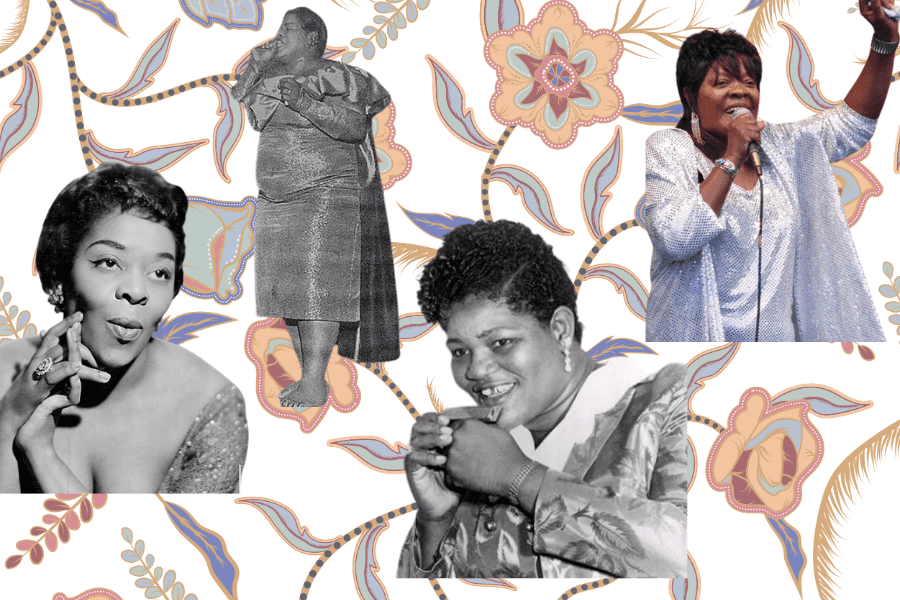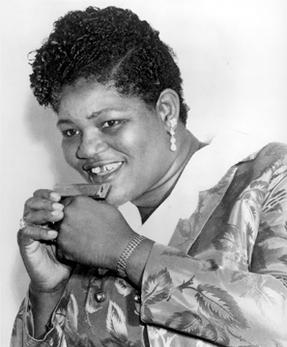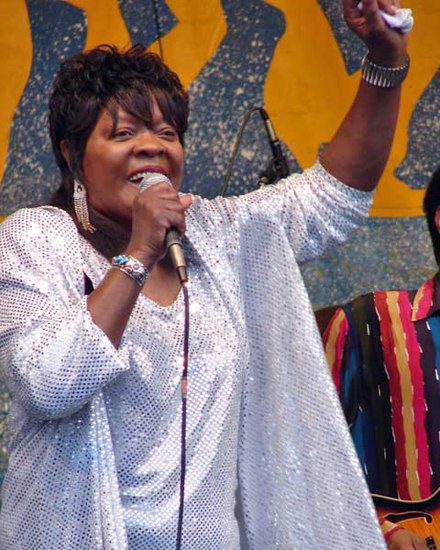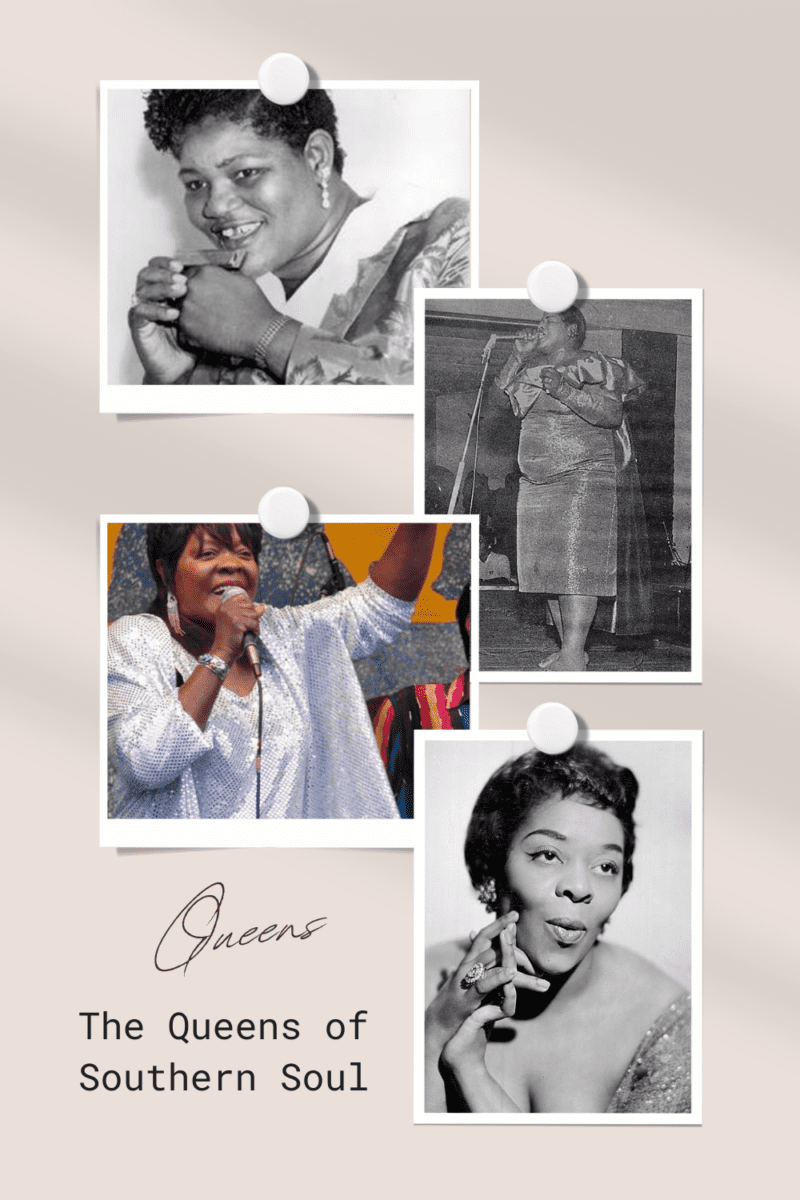
By the time Aretha Franklin walked into FAME (Florence Alabama Music Enterprises) in Muscle Shoals, Alabama in 1967, a long line of Black southern soul singing women had laid the groundwork for her success. FAME and other studios in the deep South recorded women like the indomitable Big Mama (Willie Mae) Thornton, Big Maybelle, Koko Taylor, and Dinah Washington helping to establish a Black woman’s voice in southern soul music.

Big Mama Thornton
Also known as “deep soul,” “country soul,” “downhome soul” and “hard soul,” southern soul embodies the spirit of the people and places who supported it on the chitlin circuit, at rodeos and on trail rides, fairs and festivals, in jooks, in roadhouses, in after-hours joints, and in dive bars throughout the South. The sound of southern soul is a combination of Black southern gospel, blues, R&B, and country.The women – there were many – who put southern soul on the map, testified about relationships and life with the same gusto as the men. Women like The Queen of Soul, Millie Jackson and Shirley Brown not only covered country music songs but their music was covered by white country singers. (In fact, several women of southern soul have charted across genres.) Aretha Franklin’s “I Never Loved a Man” changed her career and shone a brighter light on the women before her and the southern soul women after her. But to be clear, they were going to shine anyway as queens of their own domain.
In the late 1960s throughout the 1990s, Black women born and raised in the South were making music that gained popularity on Black radio everywhere. Carla Thomas (with Otis Redding) memorably sang the Salt-n-Pepa sampled “Tramp.” Madonna and others should thank Millie Jackson who pushed all of the boundaries with her bold sexuality and risque lyrics, to the point some Black radio stations would bleep out certain words and sections of her songs. Singers Candi Staton and Denise LaSalle recorded both secular and gospel music. New Orleans’s beloved soul queen is Grammy winner Irma Thomas. We’re still singing to the late Betty Wright’s lyrical-explainer “The Clean Up Woman,” that teaches us how to recognize “a woman who gets all the love we girls leave behind.” Shirley Brown’s “Woman to Woman” is a southern soul classic that sold a million copies within the first few months of its release in 1974. And the late Peggy Scott Adams had women side-eyeing their husbands with a song named “Bill,” which was about a married man desiring another man.

Currently, the women of southern soul continue to fill small and large venues in the South, North, East and West. Their popularity has yet to wane, growing with new audiences every day as they also testify about relationships and life like their predecessors. Singers like JCenae, Sheba Potts-Wright, Cecily Wilborn, Dee Dee Simon, Tina Diamond, Lady Redtopp, Carolyn Staten, Crystal Thomas and Ms. Jody stay booked and busy, whether the entire world knows them or not, because the people who do know about them, love them and support them.
Southern soul is a music genre that has survived and thrived for a very long time. We can give thanks to the women who performed and currently perform southern soul for its longevity. They are most certainly spotlight worthy. If you have a favorite Black woman southern soul singer, drop her name in a comment to share her with others, and give her some love.
To learn more about southern soul music, visit Daddy B. Nice’s Southern Soul RnB website.




